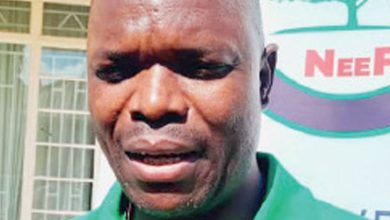Civil servants ask for bribes from pensioners
Dejection best describes Andrew Mwale, a former secondary school teacher, who now lives a life far removed from the comfort and dignity he once knew. He can neither feed himself nor afford the bribe that some civil servants are now asking to speed up payment of his pension.
Mwale, who stopped teaching in January 2019, is living a miserable life, contrary to his expectations of a smooth transition into retirement. He has been waiting for his pension since.
However, as the clock ticked and Mwale’s pension remained elusive, his savings dwindled, forcing him to make a difficult decision towards the end of 2019.
“I had to relocate from Lilongwe where I lived all my life to my home village in Kasungu where I had to start from scratch,” he said.
In a telephone interview yesterday, Mwale said this was a bitter pill to swallow. He recalled how, prior to his retirement, he possessed a smartphone, a motorbike and furniture in his house, which he sold just to make ends meet.

At the time he sold the items, he hoped to buy them again once he got his pension.
His wife eventually passed away in 2021.
Mwale lamented: “I could not even afford a befitting burial for my dear wife. Other relatives chipped in, of course, but up to now, my soul is not at peace because I feel I did not do enough.”
With his voice cracking with emotion over the phone, he said due to economic hardships, he relies on relations to help take care of his two children who are in secondary school.
Mwale lives with his widowed sister, helping with farming just to get by.
Ezekiel Banda (not real name) from Bangwe Township in Blantyre has a similar story.
He told Nation on Sunday yesterday that what hurts him most is that his wife died before she received her hard-earned pension.
Banda and his wife were both secondary teachers. They retired in 2020.
“What if I also follow my wife before receiving my pension? Will my children be able to get help?” he lamented.
The retiree asked to be anonymous for fear that he might no longer access his pension once identified.
But unlike Mwale, Banda gets help from his children whom he educated.
He said: “But I cannot be burdening them every time. They also have a life of their own.”
Stories of the duo are a stark reflection of the life pensioners are living in retirement.
Currently, there are 15 000 pensioners who are yet to receive their gratuities, some dating as far back as 2019, yet some civil
servants involved in pension processing demand huge sums of money from the retirees to expedite the disbursement of their pension funds.
This is among findings the Parliamentary Committee on Social and Community Affairs on Pension Disbursement Matters for Retired Civil Servants presented in a report to Parliament, a copy of which Nation on Sunday has seen.
As unsettling as the situation may be, the demands are not only against the law, but also exacerbate the financial struggles of people who dedicated their lives to public service before they retired.
However, this is not the only sad situation the pensioners have found themselves in as the report also states that the 44 percent devaluation of the kwacha caused further distress on them as their gratuities were calculated prior to the depreciation, which means their money has lost value.
Part of the report reads: “The committee also noted there were some retired public servants who faced significant challenges in receiving their pension gratuities because they voluntarily retired from service and not on mandatory basis, with some retiring on medical grounds and some on other equally valid personal reasons.”
The committee also observed a lack of transparency and selective payouts on pension disbursement.
Some of the reasons pertaining to selective payments are related to bureaucracy and biasness, a situation that has been condemned in the committee’s report.
All these challenges in the pension disbursements are regardless the fact that
the Ministry of Finance and Economic Affairs has been increasing allocations towards pension funds in the national budget.
For instance, in the 2020/21 financial year, K103.2 million was allocated towards pension while in the 2021/22 financial year K77.3 billion was allocated. In the 2022/23 financial year, K115.7 billion was allocated and in the 2023/24 fiscal year, K184.2 billion was allocated.
In the current financial year, K193.1 billion was allocated towards pension in the fiscal blueprint.
The committee’s findings follow various meetings with officials from the Association of Retired Public Servants, Department of Human Resource Management and Development and Ministry of Finance and Economic Affairs.
Among some of the recommendations are that in the current mid-year budget review meeting, Treasury must allocate additional funds towards pension to clear the backlog of the pension arrears and that it must further prioritise payments to retirees from 2019 onwards and expedite the process of securing funds to settle the arrears.
The committee has also recommended that the Ministry of Finance and Economic Affairs improve on transparency regarding pension disbursements, ensuring timely and clear communication with retirees.
Chairperson of the committee Savel Kafwafwa has further recommended that the Ministry of Labour should review the Pension Act of 2023 to ensure timely payment of pension gratuities, including provisions for civil servants who retired before the Act was adopted.
He said: “The committee will continue to monitor the welfare of retired public servants and ensure that labour laws are respected and upheld by officebearers.”
Minister of Finance and Economic Affairs Simplex Chithyola Banda was yesterday not available for comment.
However, in an interview yesterday, Centre for Social Accountability and Transparency executive director Willy Kambwandira, said: “It is clear that there are some public officers who are creating such problems and the scheme is bigger than what is reported. There is also a need to provide mechanisms for reporting and exposing perpetrators.”
n





